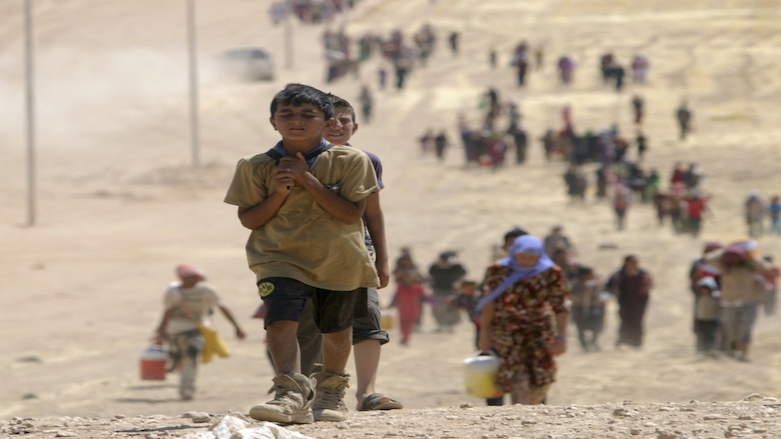UN calls for justice on third anniversary of Ezidi genocide

GENEVA, Switzerland (Kurdistan 24) - The United Nations' Human Rights Office of the High Commissioner (OHCHR) on Thursday called on the international community to recognize Islamic State (IS) genocide of Ezidis.
In a statement, the Commission of Inquiry on Syria urged the international community "to undertake steps to refer the situation to justice, and reiterates its recommendation to all parties fighting [IS] to consider rescue plans of [Ezidi] captives."
Labeled infidels by the IS for practicing an ancient and peaceful religion, the Ezidi Kurds of Mount Shingal were targeted for extinction.
In August 2014, Islamic State onslaught on the Ezidi homelands in northern Iraq’s Shingal Mountains drove an estimated 350,000 into the Kurdish territories of northern Syria and Turkey, and scattered them across the Kurdistan Region.
Th Commission is concerned that the genocide "is on-going and remains largely unaddressed, despite the obligation of States Party to the Convention on the Prevention and Punishment of the Crime of Genocide of 1948 to prevent and to punish the crime."
To date, countless thousands of Ezidi men and women remain missing or are subject to horrific violence in captivity.
"As the Syrian Democratic Forces and international coalition offensive on Raqqa intensifies, reports have emerged of IS fighters trying to sell enslaved Ezidi women and girls before attempting to flee Syria," the statement read.
The Commission urged the coalition to rescue captives and ensure their safety.
They also pushed for recognition of the genocide, "including to the International Criminal Court or an ad hoc tribunal with relevant geographic and temporal jurisdiction as well as to dedicate resources to bringing cases before national courts, whether under the framework of universal jurisdiction or otherwise."
International law and the UN charter state that when there is a need to halt horrendous crimes against humanity, massive expulsions, and war crimes, the international community has a moral and political obligation to intervene collectively for humanitarian purposes.
